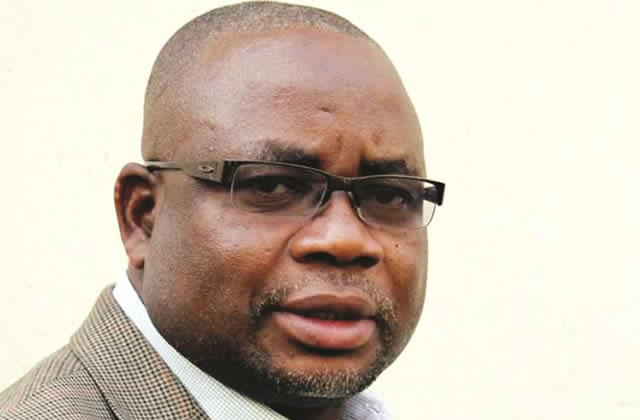Millions ‘stolen’ from schools

-
Audits unearth massive levies fraud: Minister
Lloyd Gumbo Harare Bureau
School authorities across the country could have embezzled millions of dollars from levies paid by parents thereby compromising infrastructural development, an audit ordered by the Ministry of Primary and Secondary Education has revealed.
So far about 1,800 schools (18 percent) have been audited and the exercise has unearthed massive doctoring of accounts documents to conceal the shenanigans.
The auditors that conducted the exercise included those from head office in Harare, the provinces and districts.
Deputy Minister of Primary and Secondary Education, Professor Paul Mavhima, confirmed to our Harare Bureau yesterday that the audits unearthed massive theft of funds by school authorities.
He said about $1 billion was raised by schools through levies every year of which if misappropriation was allowed to continue, it would result in schools failing to undertake infrastructure development.
“We did a round of audits where we deployed our head office auditors and also our auditors from the provinces and districts,” said Prof Mavhima.
“I don’t want to paint a rosy picture, yes we have problems especially where SDC (School Development Committee) funds are concerned.
“The round of audits that we did unearthed a number of problems. The most common was abuse of SDC funds and the typical problem was in the receipting process where different amounts are written in the top copy and the carbon copy.
“Typically the top copy because it’s going to the person who is paying the money, reflects the correct amount but the bottom copy reflects a smaller amount. The difference is then misappropriated. We need as a ministry and government to make sure that we find ways to plug these loopholes.”
Deputy Minister Mavhima said in order for the government to plug the loopholes, there was a need to audit all the schools since the audit indicated that misappropriation was rampant.
He said the anomalies were picked in both urban and rural schools.
Prof Mavhima said his ministry was in the process of consolidating audit reports from all the provinces to determine the gravity of misappropriation and come up with possible solutions to the problem.
“We’ve realised that there’s a need for us to continue with this exercise. It would be good if we could cover all the schools every year or at least 50 percent of the schools every year. When you have a situation where the probability of being audited is high, then there’s likely to be compliance, people are more likely to be diligent particularly the headmasters and the SDCs,” he said.
Prof Mavhima said if the school authorities know that there is no one watching them and the probability of being audited is next to nothing, then they will do whatever they want.
“It’s important for us to gather and mobilise resources to ensure audit is done annually.
“By and large, SDC funds are the largest contributor to the development of school infrastructure. What the government largely contributes at the moment is payment of teachers.
“If we don’t pay particular attention to proper and appropriate management of SDC resources, then we’ll be doing ourselves a disservice because that’s the biggest source of funds to develop schools in terms of infrastructure. Remember about $1 billion nationwide comes from SDC levies so there’s need to manage it well,” said Prof Mavhima.
He said some school authorities have been arrested, convicted and jailed for misapropriating school funds.
Prof Mavhima said the audit was meant to check if schools complied with regulations as well as identify gaps in their operations.
The ministry early this year embarked on an audit of school financial books following reports of massive embezzlement of schools funds.










Comments